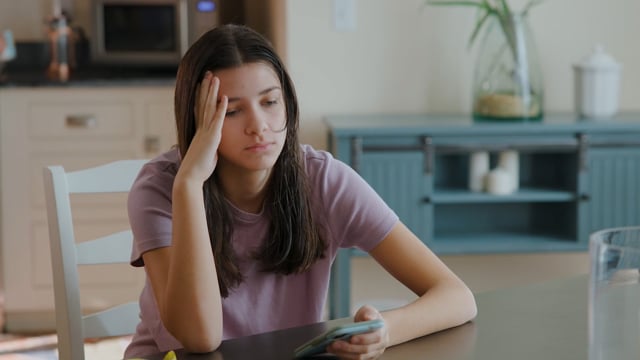Sleep and Your Teen
How Much Sleep Do Teens Need?
Teens need about 8–10 hours of sleep a night, but many don’t get it. Not getting enough sleep can make it hard to pay attention in school and at work. Teens who don’t get enough sleep also are more likely to be in car accidents, and don’t do as well in school or sports. They may feel moody or depressed, or have other emotional problems.
Why Do Teens Have Sleep Problems?
Different things can make it hard for teens to get the sleep they need:
- Early school start times and packed schedules can take away from the hours needed for sleep.
- Their internal sleep clock shifts to a later bedtime during the teen years. The body releases the sleep hormonemelatonin
later at night in teens than in kids and adults. This resets the body’s internal sleep clock so that teens fall asleep later at night and wake up later in the morning. Most teens just aren’t sleepy enough for bed before 11 p.m. - Using technology like smartphones, computers, and TV before bed can make it hard to fall asleep. Bright lights and the blue light from electronic devices also delay the release of melatonin, adding to the problem.
What Can Help My Teen Sleep?
Talk to your teen about setting regular bedtimes and wake-up times. Decide when your teen needs to get up for school in the morning and count back at least 8 hours from there.
Encourage your teen to wake up and go to bed at about the same time each day. On weekends, teens should try to stick to their sleep schedule as close as they can. Going to bed much later and sleeping in on weekends can make it harder to sleep well during the week.
Keeping these tips in mind can help your teen get a good night’s sleep:
- Keep the bedroom dark, cool, and quiet.
- Don’t keep a TV or video game system in the bedroom.
- About an hour before bedtime, have your teen put away homework and turn off TV, computers, and handheld devices. Consider turning off cellphones or charging them outside the room.
- Encourage your teen to do something relaxing, like taking a warm bath or reading before going to sleep.
- Help your teen limit caffeine (found in coffee, tea, soda, energy drinks, and chocolate), especially in the late afternoon and evening.
- Do not give your teen sleeping pills or other sleep aids unless your doctor says it’s OK.
- Teens who are very tired during the day can take short naps (less than an hour) in the early afternoon. Longer or later naps make it harder to fall asleep at night. Encourage regular exercise, which can help teens sleep better.
What if My Teen Has Sleep Problems?
Teens may have a sleep problem if they often find it hard to sleep, wake up a lot at night, snore, are very sleepy during the day, or don’t feel refreshed after a full night’s sleep.
Sleep problems in teens include:
- insomnia
- delayed sleep phase syndrome
- nightmares
- sleepwalking
- obstructive sleep apnea
- restless leg syndrome and periodic limb movement disorder
- narcolepsy
If you think your teen has a sleep problem, or you have other questions or concerns, talk with your doctor.
-

Helping Your Teen Get Enough Sleep
Not getting enough sleep can lead to physical and mental health problems in teens. By making a plan together, you can help your teen sleep better.
